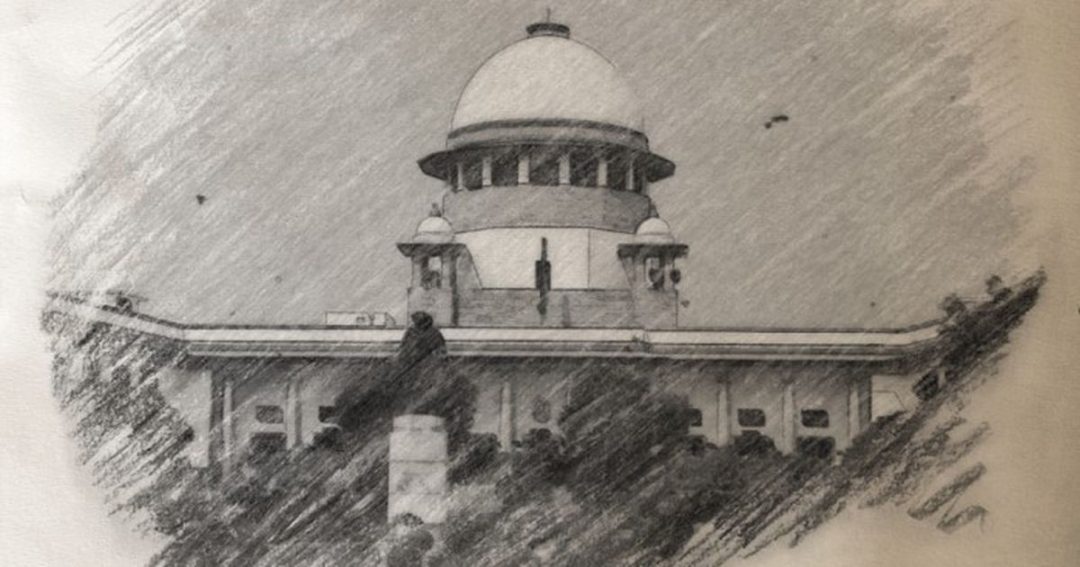
CONSTITUTIONAL MORALITY: THE COMMISSIONAIRE OF A DEMOCRACY
“The doctrine of constitutional morality is an emphatic guarantee that the Supreme Court of India is committed to protecting all minorities, despite opposition from majoritarian governments.”
~The Hon’ble Justice Rohinton F. Nariman (2018)
The Constitution of India, to some, is a luxuriant collection of ideas and to some is a dead letter of the law, etched in the crevasses of a weathered monolith. It is not possible to admeasure the extent of “constitutional morality”, but at the altar of the apex court’s observations. In the age of Navtej Singh Johar[1] and Joseph Shine[2], it is safe to say that the present day is at the apotheosis of constitutional morality. However, just like other democracies, may it be the United States, or India, there is an interstice between normative constitutional morality and real government action.
Terms like morality are always shrouded in uncertainty. Quite simply, the term means different things to different people at different times. This confusion permeates into law, as it is often argued that law and morality are deeply intertwined, each borrowing from the other.[3] In simple words, constitutional morality is an idea whose inherent elements are circumscribed in the conscience of the Constitution which negates the idea of concentration of unbridled power in the hands of the few and allows distribution of liberties and power to every citizen and high functionaries alike. Hon’ble Justice Dhananjay Y. Chandrachud observes that Constitutional morality requires filling in constitutional silences to enhance and complete the spirit of the Constitution. He further observes that it signifies a constitutional culture that is not only in favor of the government but in every subject of the law.[4] In a democracy, the commitment to constitutional morality requires the court to enforce the constitutional guarantees of equality before the law, non-discrimination on account of sex, and dignity, all of which are affected by the presence of archaic laws.[5] It is a matter of time that a society matures enough to imbibe constitutional morality into itself.
There are several cases in which the Hon’ble Supreme Court of India clarified what may be understood by “constitutional morality”.
In the case of Indian Young Lawyers Association v. The State of Kerala[6] (the Sabarimala case), the Hon’ble Court dismantled the ban on the entry of women aged between ten to fifty-five years into the Sabarimala Temple. The Hon’ble Justice Ajay M. Khanwilkar observed that a ban on entry of women is only possible when they are deemed to be innately lesser beings who shall not be entitled to live a dignified life. It is observed that the constitutional morality that prevails over the Bench intends to provide both formal as well as substantive equality to women. Therefore, at a doctrinal, structural, as well as ethical level, the exercise of rights by every citizen shall be subject to constitutional morality.
In the case of Navtej Singh Johar v. Union of India[7], the archaic sodomy law as seen in Section 377 of the Indian Penal Code 1860, was decided to have violated the constitutional guarantees of equality, privacy and dignity. The angle of constitutional morality strengthened the institutional supremacy of the Supreme Court within the constitutional realms. Against the backdrop of “heightened sectarian and caste violence”, this case revived a counter-majoritarian image of the Judiciary as a constitutional institution. In 1973, the Keshavananda Bharati case[8] identified a spectre in the system that ensured judicial supremacy at times of dispute. Similarly, the Navtej Singh Johar case also allows the constitutional morality to create an overarching arm of the same which mandates obedience to not just the fundamental rights chapter but also to the Preamble.
In the Constitutional Assembly Debates, Dr. B.R. Ambedkar had remarked about constitutional morality as a concept which essentially reminds of the superiority of the constitutional principles even at the cost of societal acceptance of a notion.[9] It has a vast scope and not only ensures strict and mandatory adherence to the core principles of the constitutional democracy but to ensure that the ultimate aim of the Constitution, which is to provide full personhood to a citizen is also realized.[10] This concept is based on Greek Historian Grote’s works who had endorsed such a concept.[11] The most recent iteration of constitutional morality can be seen in the Navtej Singh Johar case.[12]
The attainment of governance that doesn’t discriminate on grounds of sex, religion, race, skin colour and other non-tangible aspects shall be deemed to be the goal of centuries of evolution of constitutional morality across the globe. May it be clear that the prevalence of constitutional morality does not allow the envisioning of unfettered exercise of civil liberties, but only a moral and legitimate exercise of it. At this point, the author deems that any provision of the fundamental rights chapter shall be correctly interpreted only when read under the light of constitutional morality. Even though society cannot always be expected to proceed in the tandem with the Constitution’s aims, the idea of constitutional morality can be allowed to anchor the society to unassailable values like substantive equality and dignity. At present, this may seem to be utopia, but that is unequivocally what the framers of our lex suprema intended. Only when society is in conformity with these principles, it can be concluded that democracy is preserved under the broadening pinions of the Constitution of India.
Written By Aritra Deb of Batch 2021 & Edited by Devika Mallik of Batch 2021
[1] Navtej Singh Johar v. Union f India, (2018) 10 SCC 1
[2] Joseph Shine v. Union of India, (2019) 3 SCC 39
[3] Lon Fuller’s The Morality of Law (1964).
[4] NCT of Delhi v. Union of India, (2018) 8 SCC 501
[5] Joseph Shine v. Union of India, (2019) 3 SCC 39
[6] Indian Youg Lawyers Assn. v. State of Kerala, 2018 SCC OnLine SC 1690
[7] Supra, Note 1
[8] Keshavanada Bharti v. Union of India, (1973) 4 SCC 225
[9] Parliament of India, Constituent Assembly Debates (1948)
[10] Restitution of Conjugal Rights: An Infamous and Futile Matrimonial Remedy, (2019) 6 GNLU L. Rev. 3
[11] George Grote, A History of Greece 93 (Cambridge University Press 2010).
[12] Supra, Note 1
Happy Republic Day’21!

